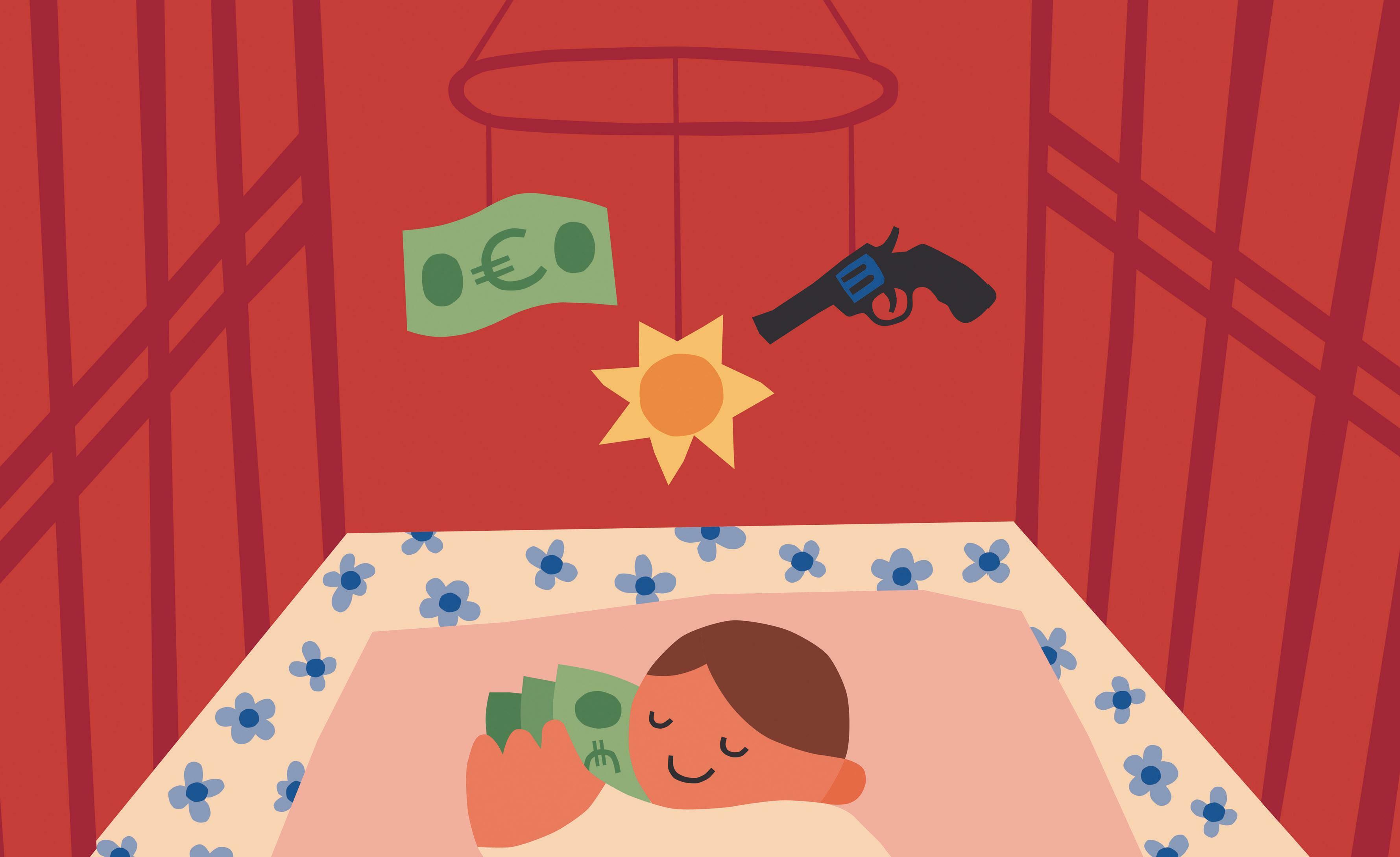Denemek ALTIN - Özgür
Sons of the guns
The Guardian Weekly
|June 28, 2024
Can children born into Italy's mafia families be saved from lives of crime? One judge is helping them to establish new lives in a bid to break the cycle

BEFORE DAWN ON A JUNE MORNING in 2010, police burst through the high security gates of a palazzo belonging to a notable mafia family on the edge of a small town in Calabria. As agents swarmed through the building, turning the place over, family members moved frantically to hide any evidence. Maria, the family's 12-year-old daughter, was given a page ripped from a notebook. It was a list of debts owing. She was told to hide it: "Put it in your knickers, they won't touch you." Her brother Cosimo, 14, watched in helpless rage as his father, mother, even his grandmother, were handcuffed and led out to the waiting police cars.
After the arrests, Cosimo was the only male family member outside prison, and it became his responsibility to collect money for the lawyers' fees. He was a baby boss with his own driver, visiting local businesses who were on the family's books, and demanding payment with menaces. "He was recognised as the boss," says journalist Dario Cirrincione. "If he went to a bar in the village, older men would get up to greet him. People waited on him, drove him around, did anything he needed. This sort of treatment turns these kids into little kings." The Calabrian mafia, the 'Ndrangheta, is based on family groups in small towns along the coastline of Italy's toe. The area is littered with half-built factories, projects paid for by state development funds and abandoned once the 'Ndrangheta got its hands on the money. Since taking control of the port at Gioia Tauro on the west coast, the organisation has become one of the biggest importers of cocaine to Europe.
The authorities have made sweeping arrests over the past decade, and staged a series of maxi trials in reinforced bunkers, involving hundreds of defendants. But the family structure means the organisation is hard to dismantle. As fathers and grandfathers are serving life sentences, many in high-security jails, the younger members are starting their criminal careers ever earlier.
Bu hikaye The Guardian Weekly dergisinin June 28, 2024 baskısından alınmıştır.
Binlerce özenle seçilmiş premium hikayeye ve 9.000'den fazla dergi ve gazeteye erişmek için Magzter GOLD'a abone olun.
Zaten abone misiniz? Oturum aç
The Guardian Weekly'den DAHA FAZLA HİKAYE
The Guardian Weekly
My boyfriend's use of AI stops him thinking for himself
My boyfriend of eight years, who is 44, has ADHD and runs his own business.
2 mins
February 27, 2026

The Guardian Weekly
'Our land lets us all breathe clean oxygen'
The Congo River basin is home to a biodiverse ecosystem-and a relentless trade in timber and charcoal
3 mins
February 27, 2026

The Guardian Weekly
Nations apart: Andrew's UK arrest highlights US passivity on Epstein files
It is a tale of two nations.
2 mins
February 27, 2026

The Guardian Weekly
Under water: Engulfed by storms, but climate denial grows
In the week between Christmas and the New Year, two Spanish men in their early 50s - friends since childhood - went to a restaurant and did not come home.
3 mins
February 27, 2026

The Guardian Weekly
The crown in court
A brief history of royal run-ins with the law
3 mins
February 27, 2026

The Guardian Weekly
Big in Beijing
James Balmont's band, Swim Deep, plays to crowds of hundreds across the UK - but in China, they play to tens of thousands. And they're not the only ones
3 mins
February 27, 2026
The Guardian Weekly
Trump's Board of Peace is serving private interests more than public good
In Gaza, aid still trickles in at levels relief agencies say are far below what is required.
2 mins
February 27, 2026

The Guardian Weekly
Needle drops Weight-loss pills are here - and big pharma stands to gain
Oral tablets could bring obesity treatment into the mainstream, with the sector predicted to be worth $200bn by the end of the decade
6 mins
February 27, 2026

The Guardian Weekly
How Italians gradually warmed to their Winter Olympics
With the atmosphere in Rome subdued as the Winter Olympics unfolded across northern Italy, travelling to the Games was not on Amity Neumeister's radar.
3 mins
February 27, 2026

The Guardian Weekly
Fire and fury
Violence erupts as security forces kill feared cartel boss.
1 min
February 27, 2026
Listen
Translate
Change font size
